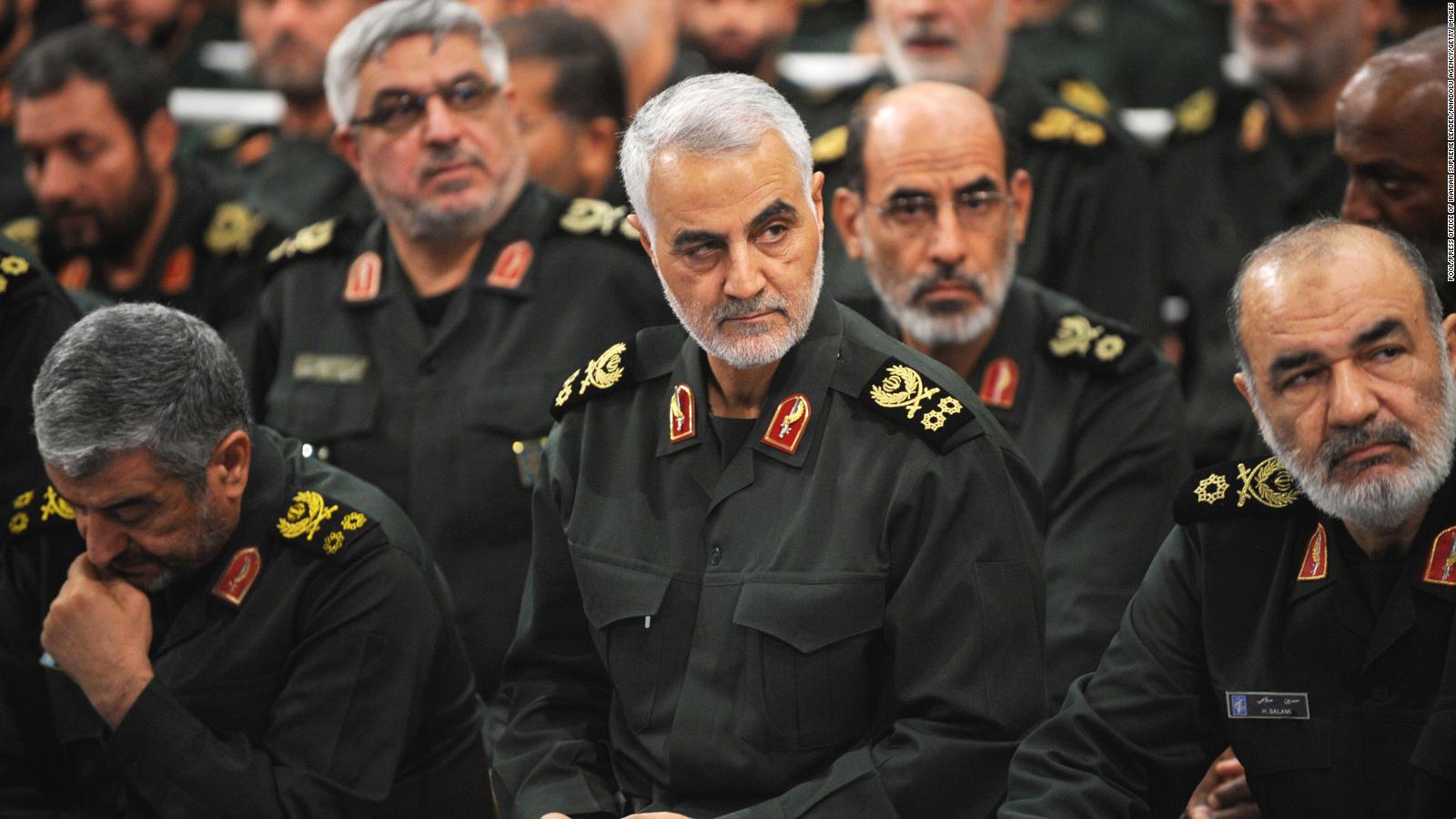Iran's supreme leader, Ayatollah Ali Khamenei, once called him a "living martyr of the revolution." But the United States viewed Iran's top general as a ruthless killer.
One of Iran's most powerful men, Soleimani cut a highly controversial figure. He was head of the Revolutionary Guards' Quds Force, an elite unit that handles Iran's overseas operations -- and one deemed to be a foreign terrorist organization by the US.
Having started his front line military career in the Iran-Iraq war during the early 1980s, Soleimani rose to prominence to become an indispensable figure in Iran, playing an instrumental role in spreading its influence in the Middle East.
"He's been in combat his entire life. His soldiers love him. He's a quiet, charismatic guy, a strategic genius and a tactical operator," Lieutenant General Mark Hertling, a national security, intelligence and terrorism analyst, told CNN.
"These are all the kind of things, looking at him from the enemy's perspective, (that) is going to create a great deal of angst in this part of the world."
The Pentagon says Soleimani and his troops were "responsible for the deaths of hundreds of American and coalition service members and the wounding of thousands more."
Known as Iran's "shadow commander," Soleimani -- who had led the Quds Force since 1998 -- was the mastermind of Iranian military operations in Iraq and Syria.
US officials believe that during the Iraq war, it was Soleimani's units that provided Iraqi insurgents with specially made bombs that could penetrate armor, a deadly weapon against American forces -- a claim Iran denied.
During the war against ISIS, Soleimani was also often reported to be on the battlefields in Iraq, slipping in and out of the country to help Shia Iraqi forces battle extremist militants.
Soleimani's Quds Force also wreaked havoc far beyond the Middle East.
US Treasury officials say Soleimani was involved in a notorious plot on American soil, overseeing Quds Force officers who in 2011 tried and failed to assassinate Saudi Arabia's ambassador to the United States Adel Al-Jubeir at Washington's upscale Cafe Milano.
In a statement on Friday, the Defense Department said Soleimani was "actively developing plans to attack American diplomats and service members in Iraq and throughout the region."
It blamed the Iranian general for orchestrating attacks on coalition bases in Iraq in recent months, including an attack on December 27 that culminated in the deaths of an American contractor and Iraqi personnel.
Also killed in the US airstrike at Baghdad International Airport early Friday was Abu Mahdi al-Muhandis, the deputy head of the Iran-backed Iraqi Popular Mobilization Forces (PMF).
PMF supporters and members attempted to storm the US embassy in Baghdad in a separate incident this week. According to the Pentagon, Soleimani also approved that attack.
Formed in 2014 to fight ISIS, the PMF is a Shia paramilitary force made up of former militias with close ties to Iran. It was recognized under a 2016 Iraqi law as an independent military force that answers directly to the prime minister.
Bagikan Berita Ini
















0 Response to "Who was Qasem Soleimani, the Iranian commander killed by a US airstrike?"
Post a Comment